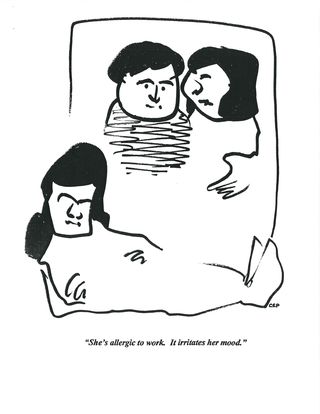Infidelity
Parenting Adolescents About Cheating in High School
Cautioning how the short-term gains may not be worth the long-term costs.
Posted October 24, 2022 Reviewed by Michelle Quirk
Key points
- By high school, many students have tried cheating—like copying homework, bringing sneak sheets to tests, and plagiarizing content.
- Cheating is justified as a skill to get ahead, something everyone does, as beating the system, or as turning the odds in one's favor.
- Cheating is tempting to do for the easy gains to be had, but since all cheating is lying, there are always costs of dishonesty to be paid.

Although I believe most parents would counsel their adolescent against cheating in high school as a violation of academic and ethical rules, many self-report surveys (Google “research on student cheating”) suggest that most students have tried cheating at one time or another.
In fact, the explanation that “everybody does it” is often used to normalize and justify cheating. Thus, common practice provides social permission for such cheating behaviors as copying homework (“borrowing answers”), sneaking information into tests (“cheat sheets”), and plagiarizing content for one’s own (“pirating”).
Justifying Cheating
Several adolescent rationales justify these behaviors:
- Cheating is treated as a practical skill: “It’s what you do to get by or get ahead.”
- Cheating is getting around unfair adult authority: "It's about beating the system."
- Cheating is turning the tables in your favor: "It's how you create your own luck."
So, how might parents address the issue of cheating with their teenager? Should they say nothing about a behavior that is so commonplace and simply let it go? I think not, because the core dynamic in cheating is too serious, too risky, and potentially too formative to ignore.
Simply put: cheating is lying. Performance is faked to fool other people into believing one knows more or can do more than is truly so. Cheating puts the adolescent in a false position with other people and with themself. It masks a person’s true unwillingness or incapacity to perform. Make a regular practice of cheating, and the young person risks making a habit of lying.
Rather than make cheating a conduct issue between parent and teenager, and the young person acting defensive with the adult, I think it works better to treat cheating as a concern for how the adolescent is treating themself. To do so, parents can acknowledge the temptations to cheat and then suggest some possible costs.
Temptations to Cheat
Of course, a teenager wouldn’t cheat unless there were some immediate gains from doing so. Consider a few:
- Saving time
- Appearing to know
- Escaping from effort
- Beating the system
- Outsmarting the exam
- Getting out of work
- Tricking authority
- Passing a test
- Completing a paper
- Meeting a deadline
- Fooling the teacher
- Making a better grade
- Getting an edge
- Qualifying
- Winning
- Satisfying parents
- Retaining eligibility
- Getting into a program
- “Doing what everybody else does”
There are many motivations to cheat that argue in its favor. By acknowledging these, parents are not voting to support cheating. They are simply recognizing that there are tempting gains to be had. Parents can declare that how much to cheat in school, and in life, is matter of choice that people must weigh every step of the way.
They can explain: "'How honest do I want to be?' is a question everybody, young and old, asks all the time; ‘How much do I want to get away with?’ is another. So: whether to cheat or not in school is your choice. However, you do need to know that the gains from cheating do not come free.”
Possible Costs of Cheating
When you cheat:
- You don’t honestly earn what you get.
- You cheat on friends who choose not to cheat.
- You are being dishonest with others and yourself.
- You create a false impression of your capacity.
- You cheat yourself out of learning more.
- You cheat yourself out of an honest outcome.
- You cast a vote of no confidence in your actual capacity.
- You create a secret history you don’t want others to know.
- You treat yourself like a liar.
- You feel like a phony.
- You sacrifice effort that can strengthen self-discipline.
- You choose ignorance instead of knowledge.
- You corrupt an honor system that depends on truth.
- You risk facing negative consequences if caught.
- You live with fear of being found out.
- You lose trust of others when they find you out.
- You get a reputation for being a cheat.
- You risk cheating again and starting a habit that can be hard to stop.
What to Suggest
So parents might consider saying something like this: “Of course, whether to cheat in school is entirely up to you. However, from what I’ve seen in life, cheating often proves to be a bad bargain. It turns out not to be in your best interests because whatever short-term gains you get are usually not worth the long terms costs you pay.”


